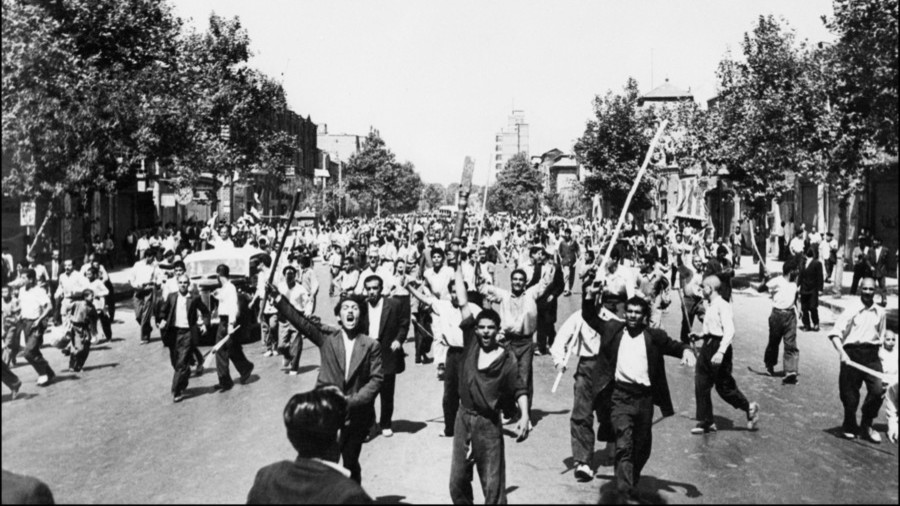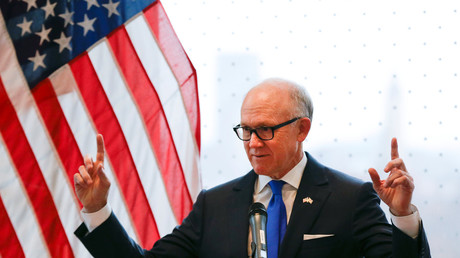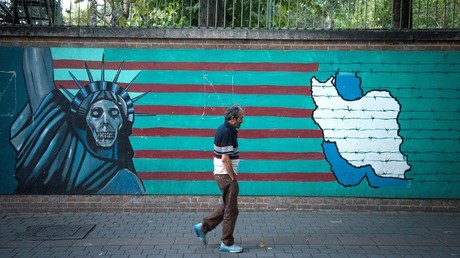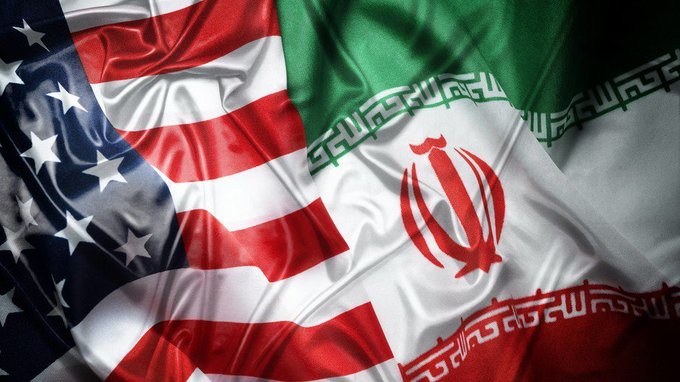1953 Iran coup – a crime authored in London and Washington
John Wight has written for a variety of newspapers and websites, including the Independent, Morning Star, Huffington Post, Counterpunch, London Progressive Journal, and Foreign Policy Journal.

This week marks 65 years since the Western-orchestrated coup in Iran. August 19, 1953 is the day that Iranians were taught a hard lesson in the rules of the game when it comes to empire and hegemony.
For on this day, the country’s democratically elected prime minister, Mohammad Mossadegh, was overthrown at the hands of Washington and London. It was, by any measure, an act of international banditry that continues to cry out for just redress.
Operation Ajax was planned, organized and unleashed by the CIA in conjunction with MI6 in response to the decision that was taken by Mossadegh – acting with the support of the Iranian Parliament (Majlis) – to nationalize Iran’s oil and husband the resulting revenue for the benefit the Iranian people.
Up to this point, the lion’s share of the revenue garnered from the exploitation of Iranian oil was sucked out of the country by the Anglo-Iranian Oil Company (AIOC) – the British state-owned oil company established in 1908 with this objective in mind and the forerunner of today’s global oil conglomerate BP.
London’s colonial assertion of control over Iran’s natural resource was undertaken at the point when its Royal Navy was moving from coal to oil-powered engines. In the interests of an empire that covered a quarter of the world at that time, the global reach of the Royal Navy was indispensable. Thus, the domination and exploitation of Iran’s oil assumed, for London, a priority of critical strategic importance.
None other than Britain’s future prime minister, Winston Churchill, proclaimed the importance of Persian [Iranian] oil with customary bombast: “Fortune brought us a prize from fairyland beyond our wildest dreams. Mastery itself was the prize of the venture.” Such an open celebration of the opportunity for national enrichment at another country’s expense is so unabashed it would make a low-rent mafia hood blush.
Over the years of Britain’s control of Iranian oil, Tehran received a derisory percentage. It was a one-sided arrangement of such unabashed colonial arrogance it could only succeed in triggering a rise in national consciousness. And it was on the back of this rise in national consciousness that Mohammad Mossadegh was appointed Iran’s prime minister in 1951 by a reluctant shah, upon being nominated for the post by the country’s parliament (Majlis) by an overwhelming majority.
The young shah, Mohammad Reza, whose father had been forced off the throne in 1941 by the British and the Soviets due to his pro-German sympathies in World War II, sat on the throne as a constitutional monarch during this period.
Mossadegh and the nationalist current he represented was anathema to the shah’s ambitions for personal power. They were ambitions that were encouraged by the British with the protection of its oil interests in mind, resulting in rising tensions as the country approached a crossroads in its history.
Upon coming to power, Mossadegh carried through his plan of nationalizing and seizing control of Iran’s oil reserves from the British, while confiscating the assets of the AIOC.
Mossadegh justified his actions thus: “Our long years of negotiations with foreign countries [over a just distribution of oil revenues] have yielded no results… With the oil revenues, we could meet our entire budget and combat poverty, disease, and backwardness among our people.”
He went on: “Another important consideration is that by the elimination of the power of the British company, we would also eliminate corruption and intrigue, by means of which the internal affairs of our country have been influenced. Once this tutelage has ceased, Iran will have achieved its economic and political independence.”
The British responded by making it impossible for Iran to sell its newly nationalized crude on the world market. However, for a colonial power whose empire had gone into steep decline, this wasn’t enough to satisfy its desire for retribution. Lacking the requisite strength and ability to settle accounts on its own, it was then that London turned to Washington, which had been established as the first among equals of Western imperial powers, for assistance.
The reasoning employed by London to draw the Americans into their feud with Mossadegh was that Iran was in danger of turning communist, citing the growing popularity and influence of the country’s Tudeh (Communist) Party as evidence. With Washington in the throes of anti-Soviet and anti-communist fever, it succeeded and the plan to topple Mossadegh – Operation Ajax – was put in motion with the CIA assuming the lead role.
Key to its success was the bribing of senior army and police officers, along with journalists, religious clerics, and members of the Iranian parliament, who were tasked with whipping up anti-Mossadegh sentiment. A smear campaign, designed to inflame the religiosity of a large section of the Iranian population, accused Mossadegh of being a communist.
According to declassified CIA documents, when it began on August 15, the coup appeared to have failed. Mossadegh’s security forces made dozens of arrests and forced the shah, who was also in on the conspiracy, to flee the country.
However, utilizing the momentum of mass demonstrations that were organized with money provided by the CIA, on August 19, 1953, Mossadegh was arrested along with thousands of his supporters. Thereafter, the shah returned from exile to become Washington’s placeman, ruling the country with extreme brutality and corruption, until the Iranian Revolution removed him and his clique from power in 1979.
The context to this history is, of course, Washington’s unremitting demonization of Iran today. The false depiction of the country as a sponsor of terrorism and a threat to the region has been used to justify the Trump administration’s unilateral withdrawal from the JCPOA (Iran nuclear deal), the tightening of sanctions, and the looming threat of war.
The fact that the precise opposite is the case – i.e. that Iran has been indispensable in combating Western-backed terrorism in the region and stands as a pillar of resistance to the sectarian regional ambitions of key US strategic allies, Israel and Saudi Arabia – has been willfully abstracted in favor of this Alice In Wonderland narrative.
The CIA- and MI6-orchestrated coup to topple Mohammad Mossadegh reminds us that no region has endured more at the hands of US hegemony than the Middle East. It cements, as well, Mossadegh’s place in history as a man with the courage to defy the West.
It is a proud legacy of defiance that lives on in the refusal of the Iranian people to submit to Washington’s writ in our time.
While that will be rightly celebrated in Tehran on the 65th anniversary of the CIA-led coup, the eve of the occasion was marked in Washington this week by the creation of a so-called Iran Action Group, tasked with coordinating its policy towards Iran, and with ‘changing its regime’s behavior.’
Like this story? Share it with a friend!
The statements, views and opinions expressed in this column are solely those of the author and do not necessarily represent those of RT.




0 Comments:
Post a Comment
Subscribe to Post Comments [Atom]
<< Home